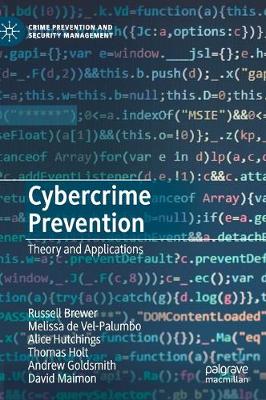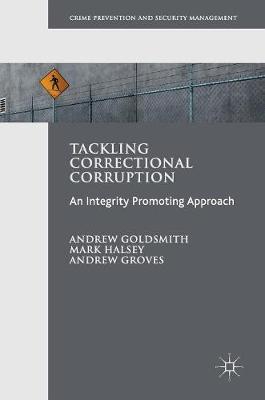Crime Prevention and Security Management
2 total works
Cybercrime Prevention
by Russell Brewer, Melissa de Vel-Palumbo, Alice Hutchings, Thomas Holt, Andrew Goldsmith, and David Maimon
Published 28 November 2019
This book articulates how crime prevention research and practice can be reimagined for an increasingly digital world. This ground-breaking work explores how criminology can apply longstanding, traditional crime prevention techniques to the digital realm. It provides an overview of the key principles, concepts and research literature associated with crime prevention, and discusses the interventions most commonly applied to crime problems. The authors review the theoretical underpinnings of these and analyses evidence for their efficacy. Cybercrime Prevention is split into three sections which examine primary prevention, secondary prevention and tertiary prevention. It provides a thorough discussion of what works and what does not, and offers a formulaic account of how traditional crime prevention interventions can be reimagined to apply to the digital realm.
Tackling Correctional Corruption
by Andrew Goldsmith, Mark Halsey, and Andrew Groves
Published 3 June 2016
Corruption is a problem in prisons about which we hear very little, except when there is an escape from custody or other scandal that makes the media. The closed nature of correctional institutions has made the activities that go on within them less visible to the outside world. While some persons might be inclined to dismiss correctional corruption as an issue, this view ignores the scale of criminality and misconduct that can go on in prison and the impact it can have upon not just the good order of the prison or the rights of prisoners but on the prospects for successful reintegration of ex-prisoners into society.
This book is the first to examine the phenomenon in any detail or to suggest what might be done to reduce its incidence and the harms that can arise from it. Andrew Goldsmith, Mark Halsey and Andrew Groves argue that it is not enough to tackle corruption alone. Rather there should be a broader attempt to promote what the authors call ‘correctional integrity’.
This book is the first to examine the phenomenon in any detail or to suggest what might be done to reduce its incidence and the harms that can arise from it. Andrew Goldsmith, Mark Halsey and Andrew Groves argue that it is not enough to tackle corruption alone. Rather there should be a broader attempt to promote what the authors call ‘correctional integrity’.

